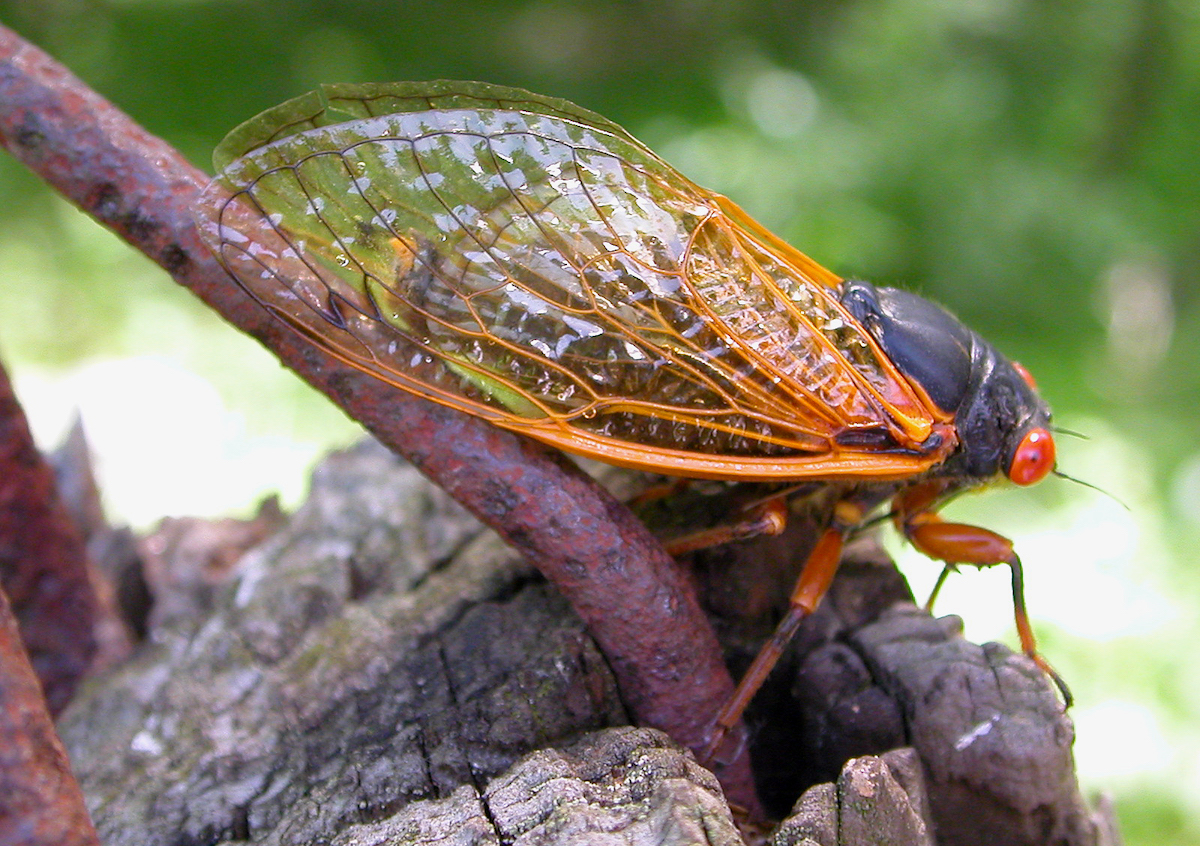While experts say it’s hard to predict the exact day of the cicadas’ hatching, they have a pretty good idea of when it’s likely to begin. Jessica Ware, PhD, an associate curator of invertebrate zoology at the American Museum of Natural History, told Reuters she expects the emergence will be sometime around May 13. “May is going to be a loud month, for sure, for cicadas,” said Ware. The cicadas, which have been residing below ground feeding off tree roots since 2004, must wait for spring weather to warm the soil so they can emerge, according to Reuters. Once they burst from the ground, they will shed their skin, then start feeding and seeking mates. And for signs of infestation you need to know, If You Smell This in Your Bedroom, You Might Have Bed Bugs. You’re probably familiar with the sound of your run-of-the-mill cicadas that are boisterous on summer nights. While the Brood X cicadas are a bit different, they make a similar noise. “It’s this kind of dance; males are showing that they can call as loud and as long as possible, which means they’re probably a good mate,” Ware explained. “Females are listening. Are they calling loud? Are they calling long? … It’s kind of a complicated acoustic dance that they’re doing.” The sound is a loud chirping noise produced by a vibrating plate on their abdomens, per Reuters. And for more bugs to avoid, If You See This Terrifying Insect, Call the Authorities Immediately. If you’re not fond of bugs, you may want to consider leaving town or at least staying inside during the reemergence. “There will be spectacular numbers of cicadas emerging very heavily,” Michael Raupp, PhD, professor emeritus of entomology at the University of Maryland, told ABC 7. “I tell people, look, if you just can’t bear this, just get out of town for a few days.” Raupp predicted the height of cicada activity would fall between the end of May and the beginning of June.ae0fcc31ae342fd3a1346ebb1f342fcb However, he insisted that cicadas are not something worth running from. Raupp wants the public to understand that cicadas “aren’t going to bite their pets, they’re not going to harm their cats and dogs, they’re not going to carry away small children like the monkeys in The Wizard of Oz.” And for more up-to-date information, sign up for our daily newsletter. While 15 states will be affected by the cicada re-emergence, Raupp told ABC 7 that he predicts Maryland to be the epicenter. Raupp predicted that some areas in Maryland will see as many as 1.5 million cicadas per acre rising up. This might sound scary to the average person, but Raupp is eager to experience the emergence. “This is going to be spectacular—it happens nowhere else on the planet. It’s going to be very, very cool, so let’s take advantage of it,” he said. And for more insect activity in your backyard, If You See This in Your Yard, Prepare for a Bug Invasion, USDA Says.



